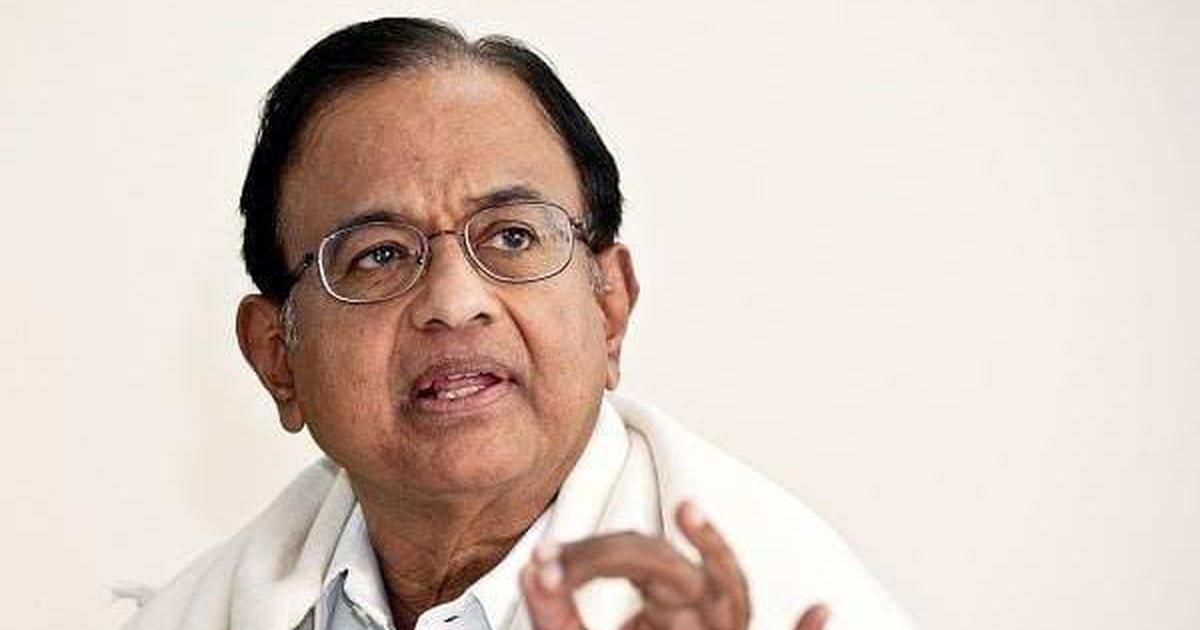Legislating Authoritarianism

- P. Chidambram, M.P
‘Authoritarianism’ is the antithesis of government, according to law. Under authoritarianism, there is reduction in the rule of law, rejection of plurality, centralisation of power and imposition of the will of the majority or, sometimes, one person. ‘Authoritarianism’ is usually associated with rubber-stamp parliaments where all or nearly all seats in parliament are held by the ruling dispensation. Such parliaments too pass laws!
Unfortunately, democratically-elected parliaments have begun to copy authoritarian parliaments and pass laws that may or may not pass the test of legality. Such laws, in my view, certainly do not pass the test of legitimacy. A recent example of a legislation lacking in legitimacy is the Bill passed by Israel’s parliament (the Knesset) restricting the power of the courts to review the validity of laws made by parliament.
What is Constitutional?
India is not far behind. Since fingers will be pointed to the Constitution Amendments and legislation passed during the Emergency (June 25, 1975 to March 21, 1977), let me straightaway admit that many of the amendments made and laws passed did not satisfy the test of either legality or legitimacy. That shop-worn argument out of the way, let’s look at examples of recent legislation that were passed by the Parliament of India.
The government takes a narrow view of ‘Constitutionality’ that the law should not contravene any express provision of the Constitution. But as the Supreme Court has pointed out there are implicit boundaries that shall not be crossed: e.g., constitutional morality and proportionality. Another boundary has been pointed out by Mr. Suhrith Parthasarathy (The Hindu dated August 1, 2023) who opined that “the Indian Constitution brims with moral values” and framed the boundary as “the sanctity attached to the various subtleties” in the relationship between the Union and the States. In the current monsoon session, there are at least three Bills that crossed the constitutional boundaries:
The Forest (Conservation) Amendment Bill
Between 2001 and 2021, the total forest cover increased from 675,538 sqkm to 713,789 sq. km, mostly land with tree canopy density of 10-40 per cent. (The decline in forest cover with canopy density above 40 per cent was only 37,251 sqkm.) The Amendment Bill reverses the gains of 40 years by introducing retrograde provisions. Land recorded as forest but not notified before October 25, 1980 and land diverted to non-forest use before December 12, 1996 will be excluded. Non-notified natural forests (“deemed forests”) will be excluded. These exclusions are contrary to the judgement of the Supreme Court in the T.N. Godavarman case, the Forest Rights Act, 2006 and the judgment in the Niyamgiri Hills case. Land situated within 100 km from international borders for linear projects for national security will be excluded. Almost the whole of many north-eastern states and the Himalayan region, which have the highest forest cover and are biodiversity hotspots, fall within the said 100 km. Land for strategic and security-related infrastructure will be excluded. The list of non-forest purposes has been trimmed; zoos, safaris, eco-tourism will no longer be non-forest purposes; and any land may be excluded from non-forest purpose under terms and conditions specified by the central government.
More than the drastic dilution of the Forest (Conservation) Act, 1980, the manner in which the amendments were made reveals authoritarianism. The Bill was not referred to the Standing Committee concerned but to a Joint Committee of Parliament (JCP). The JCP, by a majority, recommended no changes. Six Opposition MPs recorded a powerful dissent. Without further consultation, and brushing aside the objections of forest dwellers, experts, environmentalists and civil society organizations, the Bill was pushed through without a meaningful debate.
The Multi-State Cooperative Societies (Amendment) Bill
A central government-appointed Election Authority will conduct elections to Multi-State Cooperative Societies. Government’s shareholding in such societies cannot be redeemed without prior approval, ensuring government’s perpetual presence and control. Complaints of members will be adjudicated by central government-appointed Ombudsmen. Boards of multi-state cooperative societies, in which the government has a shareholding or to which government has extended a loan, may be superseded. The Bill was passed amidst disruption without a meaningful debate. We have bid goodbye to the hallowed principles of co-operation, namely, democracy, autonomy, self-help and absence of any government control.
The GNCTD (Amendment) Bill
Article 239 AA makes special provisions with respect to Delhi. Sub-article (4) contains the historical words “….with the Chief Minister at the head to aid and advise the Lieutenant Governor…”. There can be no doubt that the Constitution envisaged a representative and parliamentary form of government for Delhi. The present government had tried every trick up its sleeve to reduce GNCTD to a municipality or less. It failed twice. Now the government has brought a Bill that will take away control of the ‘services’ (meaning government officers) from the ministers and place them under the LG. The ministers will be reduced to show pieces at the mercy of the LG and his officers. The Supreme Court will decide whether the Ordinance/Bill is legal or not, but I am clear that it is not legitimate. The Bill makes the LG appointed by the central government a Viceroy, a post that was abolished when the British were leaving India. The three Bills are examples of using parliamentary legislation to impose a centralised and authoritarian model of government. They are excesses that must be undone in the future.
Courtesy: The Indian Express







